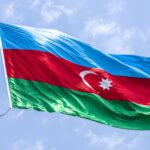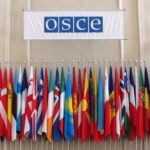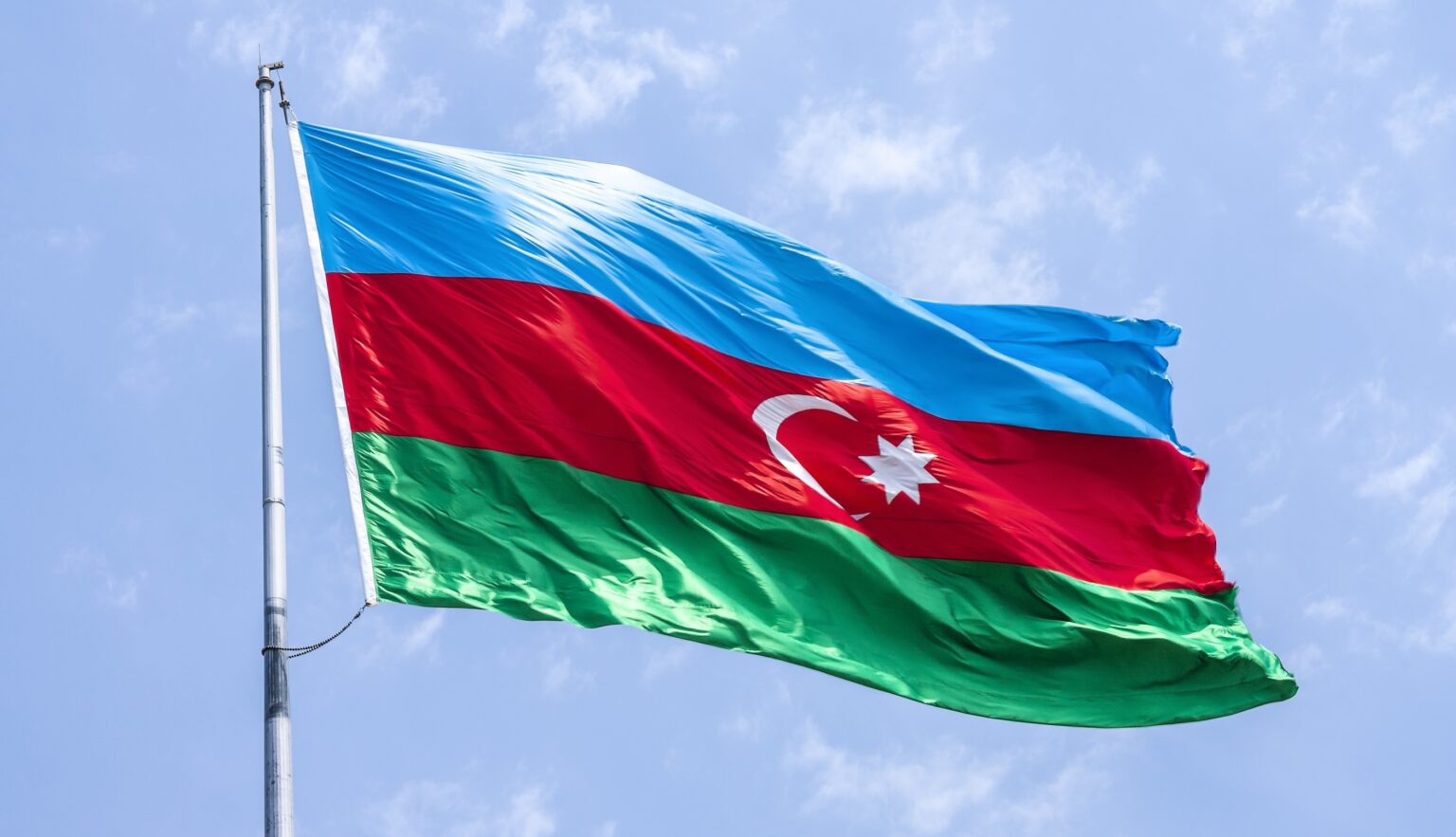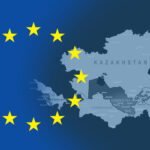Neutrality, whose origin traces back to the Latin word “neuter,” meaning “neither one nor the other,” has a long history as a political strategy. In the Middle Ages, neutrality was understood as the desire of individual rulers to stay out of armed conflicts. The legal understanding of the concept of neutrality was introduced by Hugo Grotius in his treatise “On the Law of War and Peace” (De jure belli ac pacis, 1625), deriving it from the concept of natural law. Grotius’ approach was that: “The right of neutral nations to their property must be respected, and their property must be protected from any damage by belligerents.” In 1648, the Peace of Westphalia challenged this concept, prescribing collective military sanctions against any state that violated peace and banning neutrality as contradictory to the obligation to unite forces against an aggressor.
The situation changed after the Napoleonic Wars, when the Congress of Vienna in 1815 declared permanent neutrality to be in the general interest of Europe. The Swiss Confederation was recognized as perpetually neutral, marking a key moment in European political history.
Today, the laws regulating neutrality are largely defined by the Paris Treaty of 1856 and the Hague Conventions of 1907, concerning the rights and obligations of neutral powers on land and at sea, implying non-participation in wars, refusal to join military-political blocs, and the reduction of military arsenals and budgets.
In the 21st century, the political concept of neutrality has undergone significant changes, and its traditional forms no longer correspond to modern realities. Although the notions of permanent and traditional neutrality have not been abolished, they are now supplemented by new characteristics. The fall of the “Iron Curtain,” the possibility of neutral countries joining NATO, and participating in various military programs have sparked discussions about the possible end of the era of neutrality.
So, can the officially recognized neutral status for Azerbaijan, located in the strategically important region of Eurasia, be considered today as a factor minimizing external threats in conditions of high geopolitical tension? This question becomes particularly significant for a country frequently facing external challenges, including pressure from major powers and involvement in regional conflicts.
From Switzerland to Costa Rica: A Brief Overview of Experiences
Each state has come to the decision of neutrality for its own particular reasons. For many countries, neutral status became and remains today a strategy for maintaining internal stability and avoiding the devastating consequences of military actions. In a historical context, neutrality allowed a number of countries to avoid involvement in major global conflicts, preserving their resources and population. This, in turn, strengthened their positions on the world stage and allowed them to develop their unique models of social and economic development.
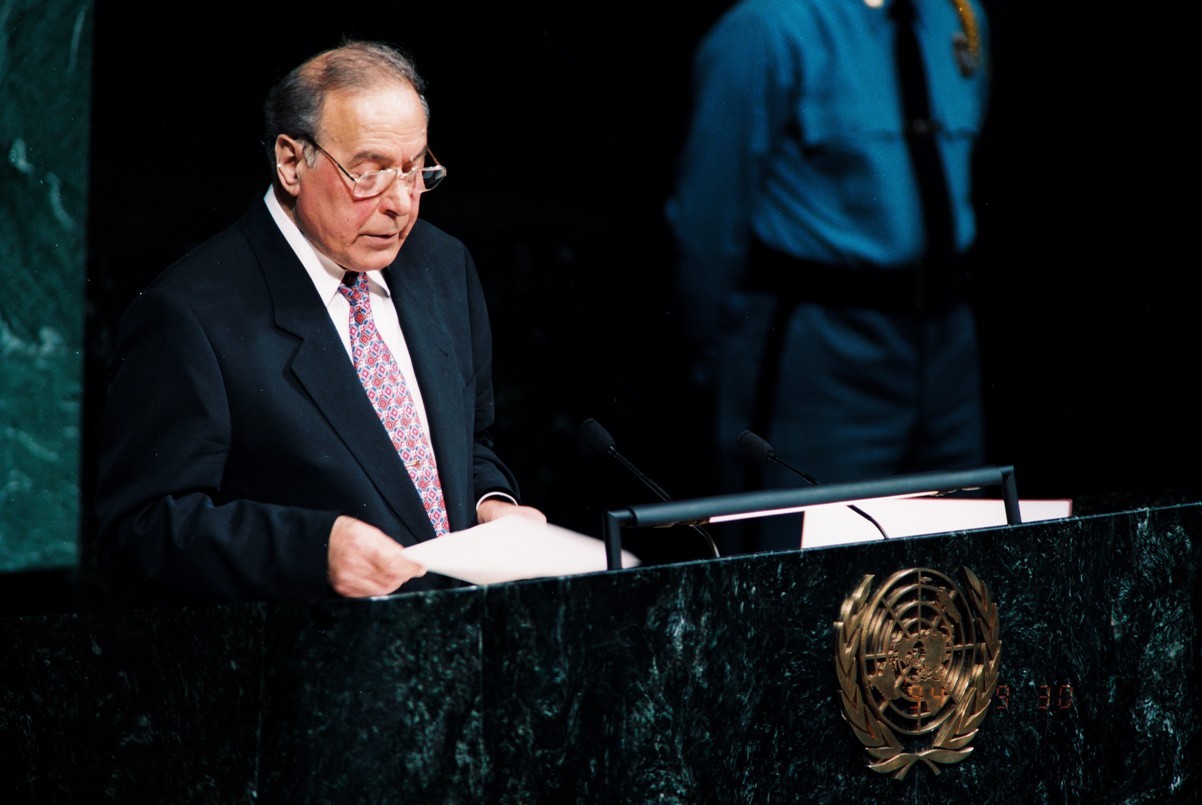
In this context, it is worth noting that with the rise to power of the third president, Heydar Aliyev, in 1993, Azerbaijan, without officially declaring its neutral status (as Turkmenistan would do two years later), began to pursue a multi-vector and balanced foreign policy. This policy effectively initiated the country’s neutral course. Since then and to this day, Azerbaijan seeks to maintain stable and mutually beneficial relations with all key players in the region and beyond. Thus, despite the absence of an official declaration, it can be argued that the country has long been practicing de facto and partial neutrality.
Regarding the de facto synonym for the word “neutrality,” namely Switzerland, this country, thanks to its geographical location and diplomatic flexibility, has maintained neutrality since 1815, successfully avoiding involvement in world wars and remaining independent. This policy allowed the country to become a platform for international negotiations and to maintain stability even during periods of global tension. As a result, Switzerland became an important center for many international organizations and diplomatic meetings.
Sweden, which also adhered to neutrality since 1815 and avoided participation in global conflicts, changed its course after Russia’s invasion of Ukraine by joining NATO. This step, which is a reaction to changing geopolitical realities and aimed at strengthening national security in light of new threats, did not lead to a revision of the entire concept of neutrality but rather an exception caused by circumstances.
Belgium, which gained neutral status after the London Conference of 1839, was repeatedly threatened during the world wars. Nevertheless, its neutrality contributed to the formation of international law and the maintenance of European stability in the 19th and 20th centuries.
Austria declared its permanent neutrality in 1955 after the end of the Allied occupation. This policy remains an important part of national identity, although Russia’s invasion of Ukraine has sparked fierce debates in society about the possibility of revising this status.
Ireland, which declared neutrality after gaining independence in 1922, particularly emphasized this policy during World War II. This strategy allowed Ireland to avoid involvement in military conflicts and focus on internal development.
Finland, historically balancing between blocs and centers of power, also revised its neutrality policy after Russia’s invasion of Ukraine in 2022, applying for NATO membership. This change reflects new security threats and the desire to protect its interests, highlighting the importance of adapting foreign policy to current challenges.
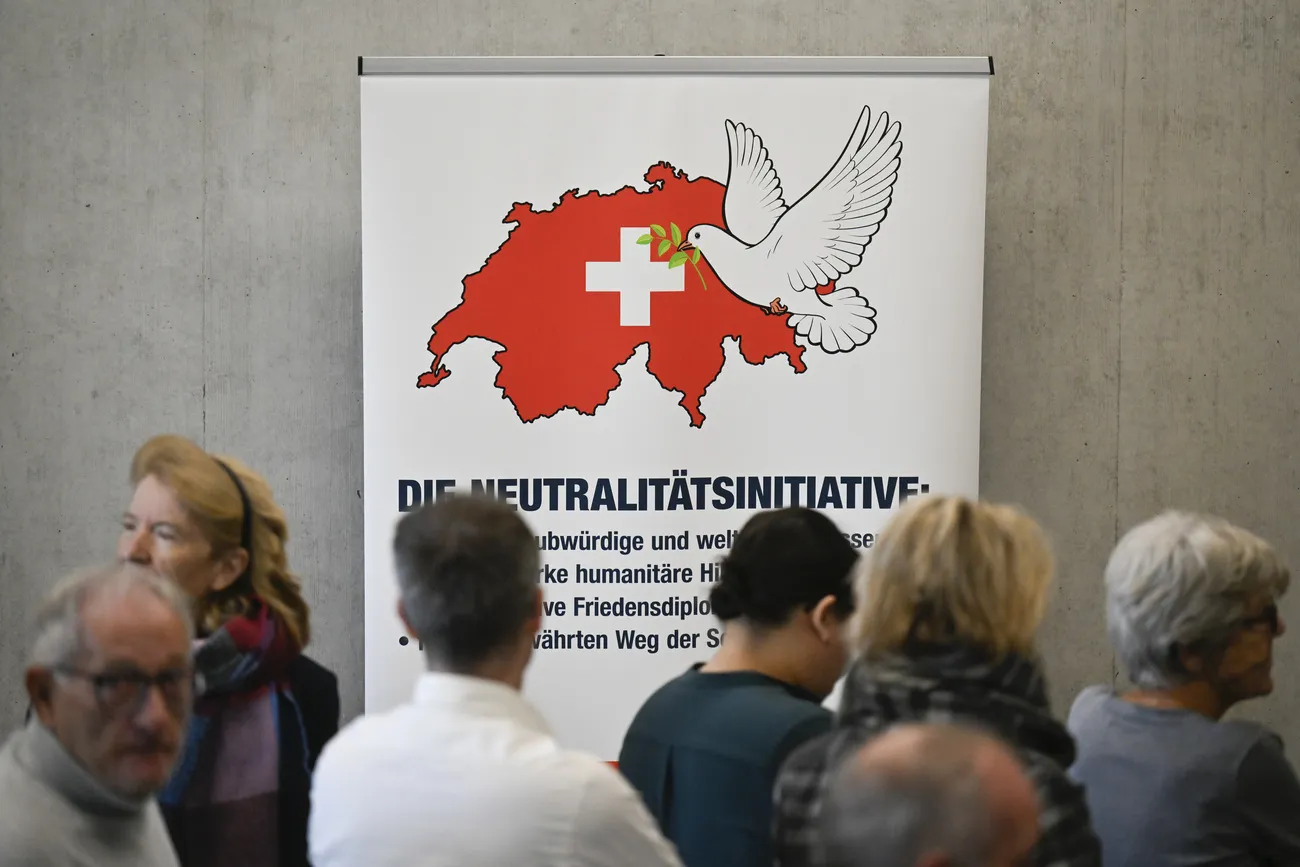
Liechtenstein and Malta, small countries, maintain neutrality, allowing them to avoid military conflicts and focus on economic development. Malta, which enshrined neutrality in its constitution in 1981, strengthened its position as a peaceful mediator in international affairs, demonstrating that even small countries can play a significant role on the world stage.
Costa Rica adopted a new Constitution in 1949, according to which the permanent army was abolished. This decision, made after victory in the civil war, allowed resources previously allocated for military needs to be directed towards education, healthcare, and other social programs. This policy contributed to the internal stability and economic growth of the country.
Laos signed the Declaration of Neutrality on July 23, 1962, and Cambodia affirmed the Agreement on Neutrality and National Unity on October 23, 1991, in Paris. These documents became part of a broader political settlement of conflicts and aimed at maintaining peace and stability in these countries.
Turkmenistan declared its neutrality in 1995, allowing it to maintain stable international relations and develop its economy. This decision became a key factor in shaping the national identity and foreign policy strategy of the country.
The Vatican, also known as the Holy See, adheres to a policy of neutrality, especially notable during periods of conflict. This policy allows it to remain an independent and influential player on the international stage, despite its small size and specific status.
As we can see, each of the mentioned countries found its path to neutrality based on its own historical, geographical, and political factors. However, it is also evident that changes in the geopolitical environment, such as Russia’s invasion of Ukraine, have forced countries to reconsider their positions and adapt to new challenges. Sweden and Finland, joining NATO, illustrate that neutrality is not a static concept and can change in response to evolving threats and realities.
Azerbaijan in the Era of Global Competition
Azerbaijan, located at the strategic crossroads between Europe and Asia, possesses significant energy resources, including vast reserves of oil and gas. This makes it a key player in international energy politics. Its geographical location and natural wealth inevitably attract the attention of major world powers, each seeking to increase its influence in this crucial region.
Amid all these challenges, Azerbaijan constantly seeks ways to balance the competing interests of various countries while ensuring its security and sustainable development. In this context, neutrality could be considered a potential strategy to help Azerbaijan avoid involvement in international conflicts and minimize the risks of military aggression. However, to implement this strategy, it is necessary to carefully weigh all the pros and cons and consider the internal and external factors affecting the possibility and advisability of adopting such a status.
Advantages of Neutrality
A globally recognized neutral status allows a country to remain outside the zone of conflicts and wars, significantly reducing the likelihood of external invasion and attacks. For Azerbaijan, this is especially important given its geopolitical position and history of conflicts in the region.
A neutral stance can also attract foreign investment and promote the development of the financial sector. Successful examples include Switzerland and Austria, which have achieved significant success in attracting capital and developing their economies thanks to their neutrality. Investors prefer stable and safe countries where the risks of political instability and military conflicts are minimal. By adopting neutrality, Azerbaijan could create favorable conditions for business, contributing to economic growth and the creation of new jobs.
The absence of external military threats would allow focusing on internal problems, such as improving the population’s standard of living, developing education, and healthcare. Neutrality could create a calmer and more stable environment within the country, fostering social harmony and the development of civil society. In conditions of peace and stability, the government would be able to direct resources towards improving infrastructure and enhancing the quality of social services, ultimately leading to an improved quality of life for Azerbaijanis.
Moreover, neutral status allows a country to conduct an independent policy, without succumbing to influence and pressure from other states or international organizations. This is especially important for maintaining sovereignty and independence in decision-making regarding national interests.
Disadvantages of Neutrality
However, neutrality has its downsides. In conditions of conflicts, it can be perceived as a weakness, which would increase pressure on the country. When a country declares its neutral position, it may signal its unwillingness or inability to participate in military conflicts, which, in turn, may encourage aggressive actions from stronger states or regional players. Under such conditions, Azerbaijan may face increased political and economic pressure, requiring additional efforts to protect its security and interests.
Unresolved territorial disputes and military conflicts also present serious obstacles to achieving neutral status. For Azerbaijan, resolving the conflict with Armenia is a key condition for declaring hypothetical neutrality, as the ongoing conflict undermines stability and security in the region, making a neutral position practically impossible. Armenia, maneuvering between Russia and the West, demonstrates instability and weakness due to the lack of agency, which increases its vulnerability and poses a threat to regional stability.
Neighboring countries striving to join military blocs or alliances can also create additional diplomatic challenges for Azerbaijan. Georgia, for example, actively seeks integration into Western structures such as NATO and the EU. Interacting with such countries will require Azerbaijan to exercise exceptional diplomatic skill to safeguard its interests while maintaining neutrality.
To maintain a neutral status, Azerbaijan would also need to double, triple its efforts to sustain its defense capability and diplomatic positions. Neutrality does not exempt from the need to have a strong and ready-to-defend army to ensure security. This would require significant investments in defense technologies, training, and preparation of military personnel, as well as the development of a national security system.
Additionally, a neutral country must actively participate in international diplomacy, maintaining good relations with various states and preventing possible threats. This includes constant diplomatic presence at international forums, negotiations, and the development of strategic partnerships that do not violate the principles of neutrality. By these measures, Azerbaijan has achieved impressive results, possessing the most powerful army in the South Caucasus and a reputation as a reliable partner and negotiation platform in international affairs.
International (Pro)activity of Azerbaijan
Today, dynamically developing Azerbaijan is an important participant in cross-border projects. Its strategic location in a region where the political and economic interests of leading world countries intersect makes it one of the centers of confrontation between major actors in global politics. Although official Baku has always emphasized that Azerbaijan adheres to neutrality in the military-political and economic conflicts of superpowers and will not allow its territory to be used against neighboring countries, it still faces various manifestations of this struggle, attempts at pressure, and threats.
As mentioned earlier, since the early 90s, Azerbaijan’s multi-vector and balanced foreign policy strategy has provided for the development of healthy relations with countries in the region and the West, establishing mutually beneficial cooperation with all states and coalitions. Thanks to the implementation of this multi-vector foreign policy, the Republic of Azerbaijan has been able to significantly protect itself from numerous threats, ensure stability in the country, and establish equal partnerships with many countries worldwide.
Azerbaijan today is a member of a number of international organizations, such as the United Nations (UN), the Organization for Security and Co-operation in Europe (OSCE), the Organization of the Black Sea Economic Cooperation, the Non-Aligned Movement, the Organization of Turkic States, the Council of Europe (CoE), the Organization of Islamic Cooperation (OIC), UNESCO, ISESCO, the Commonwealth of Independent States (CIS), and others. Azerbaijan also expands multilateral diplomatic relations and develops cooperation with organizations such as NATO and the European Union.
Let’s consider the hypothetical possibility of Azerbaijan’s neutral status in combination with participation in various international formats and try to understand how being in them correlates with this status.
The Non-Aligned Movement
Azerbaijan has significant experience in participating in and leading the Non-Aligned Movement (NAM), which can serve as a useful foundation for declaring neutrality. The Non-Aligned Movement is an international organization uniting countries striving to avoid participation in military alliances and maintain an independent foreign policy. Unlike the concept of neutrality, NAM does not require a complete renunciation of military activity or participation in international conflicts, which provides its participants with a certain flexibility in foreign policy and military matters.
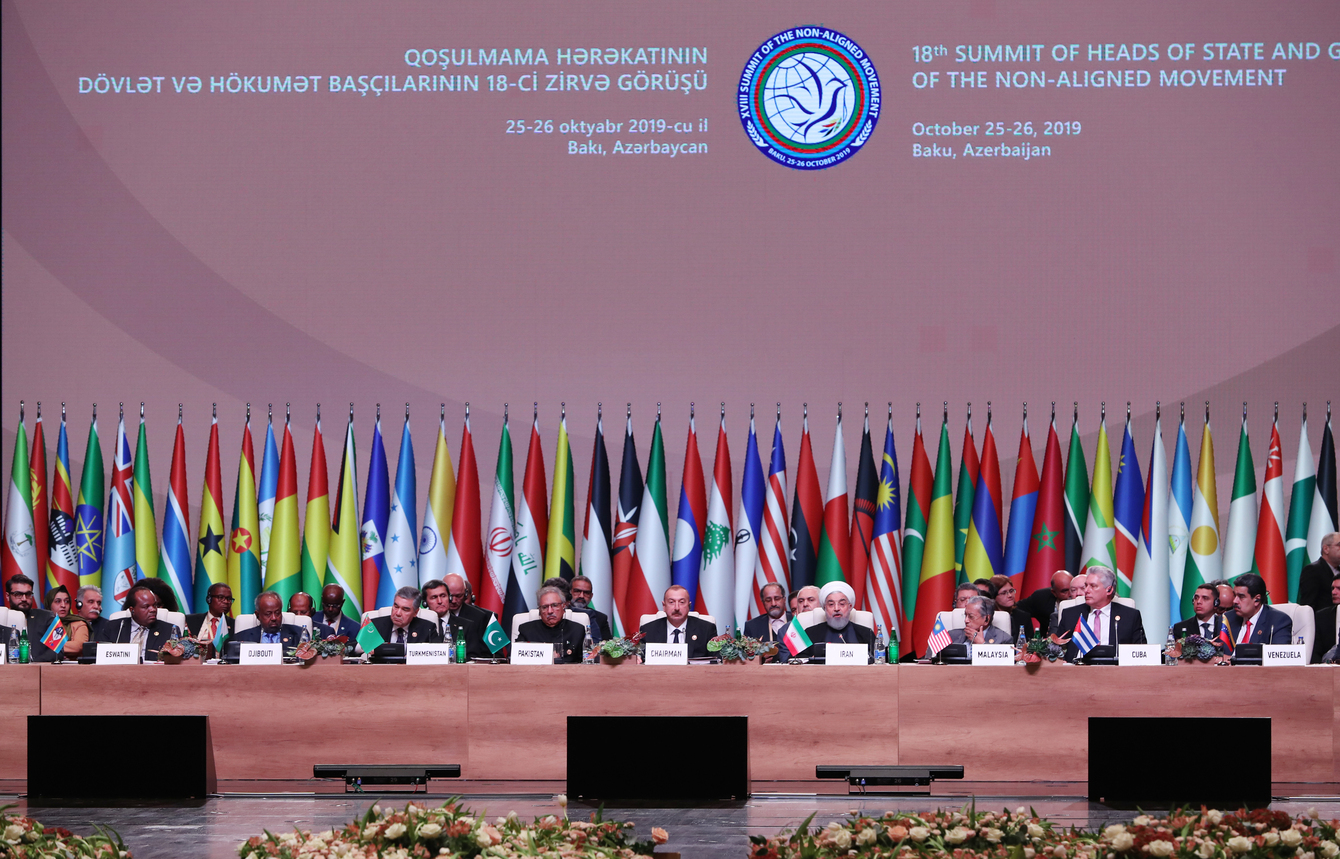
The main difference between neutrality and non-alignment lies in the obligations and behavior of states in international conflicts. Neutrality implies a strict refusal to participate in wars and military alliances, whereas non-alignment does not impose such rigid obligations. NAM participants can engage in international conflicts, support certain sides, or have military agreements with other countries while maintaining their independence from major military blocs such as NATO or the CSTO.
NAM members can conclude bilateral or multilateral military agreements with other countries, which contradicts the concept of neutrality. For example, India, as a NAM member, has military agreements with several countries, just as Azerbaijan maintains necessary defense ties, such as with Turkey, without violating the principles of non-alignment.
Many NAM member countries are involved in regional conflicts and have their interests in these conflicts, making it impossible to maintain full neutrality. For example, Egypt and Syria, as NAM members, actively participated in the Arab-Israeli wars. For Azerbaijan, still at risk of potential conflicts, this is especially relevant.
Azerbaijan’s membership in the Non-Aligned Movement is, in fact, a form of neutrality, albeit with certain reservations. Participation in NAM allows Azerbaijan to avoid participation in rigid military alliances while maintaining the ability to conduct a flexible foreign policy and support defensive ties with other countries. Thus, although not all NAM member countries are neutral, for Azerbaijan, this membership represents an optimal balance between maintaining independence and ensuring national security.
The 3+3 Format
The South Caucasus region includes three countries: Azerbaijan, Armenia, and Georgia. Despite their proximity, they lack a unified regional structure for consultations, and each country has its unique foreign policy priorities. Additionally, the neighboring countries of Turkey, Russia, and Iran, which are geographically adjacent to the South Caucasus but remain external actors, can be considered the first group of external actors due to their significant interest in the region.
The second group of external actors includes geographically distant countries with interests in the region, such as the USA, the EU, the UK, France, China, and India.
The first group (Turkey, Russia, and Iran) competes in the region but also cooperates with regional countries in the 3+3 format, promoting inclusiveness through interaction with nearby neighbors. Although their approaches to the 3+3 format differ (for example, Georgia still refuses to participate), all are interested in this format for geopolitical and economic reasons.
In the second group of external actors, interests are also divided: geopolitical actors include the USA, France, and the UK, with the EU seeking to join this group. Geoeconomic actors include the EU, the UK, China, and India, which are primarily interested in the region’s communications and energy. This second group also seeks to realize its interests through alliances and strategic partnerships with regional countries.
Over the past three years, Russia and Iran have found themselves in unfavorable situations, while Turkey, the USA, and the EU have achieved significant successes. Turkey occupies a unique position, taking the initiative within the first group of external actors after the victory of its ally Azerbaijan in the war against Russia’s ally, Armenia. This has increased Turkey’s influence in the region. Almost all members of the second group coordinate their interests with Turkey to some extent, making it an important partner for both groups of external actors.
Today, traditional alliances in the region are undergoing changes. This is noticeable in the relationships between Russia and Armenia, as well as between Georgia, the EU, and the USA. The alliance between Azerbaijan and Turkey remains the most stable and effective. This alliance demonstrates successful strategic goals and can withstand external pressure, forcing other interested parties to consider its interests.
Azerbaijan’s aspiration towards the 3+3 format reflects its desire to balance various external forces and maintain good relations with all key players in the region. This could contribute to creating conditions for potential neutrality, requiring diplomatic flexibility and independence.
Shusha Declaration
The Shusha Declaration, signed in June 2021, strengthens strategic military cooperation between Azerbaijan and Turkey. This document confirms allied relations and joint efforts to ensure security and stability in the region, including joint military exercises, exchange of military information, and mutual support in case of threats. The Declaration strengthens bilateral relations and creates a solid foundation for defense cooperation.
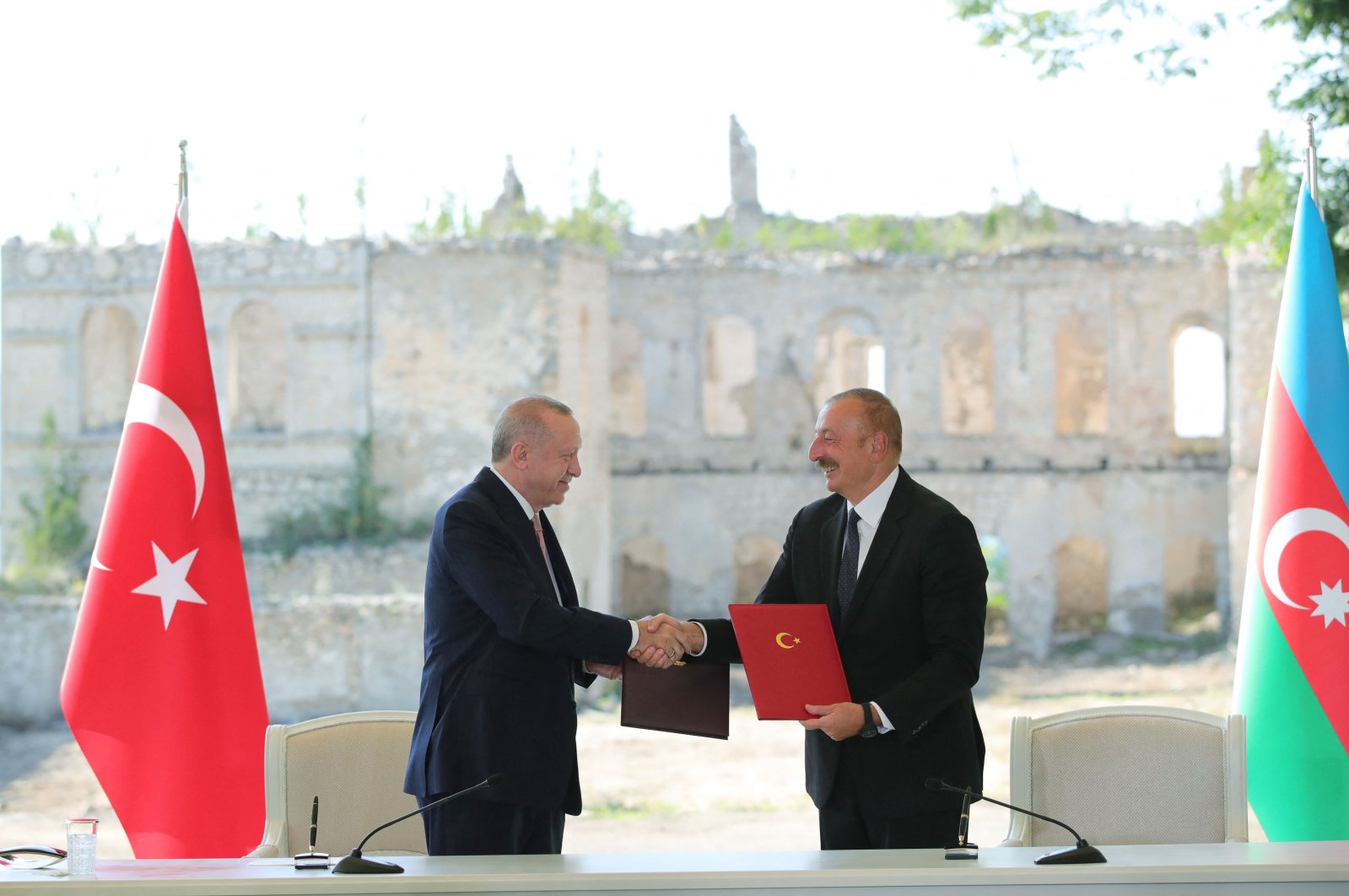
Neutrality traditionally implies a refusal of military alliances and non-intervention in military conflicts. However, the alliance with Turkey, within the framework of the Shusha Declaration, should not be viewed as an ordinary military alliance but as a formalization of special, fraternal relations between the countries. Turkey and Azerbaijan have deep historical, cultural, and ethnic ties, making their relationship unique and beyond standard military alliances.
Neutrality does not necessarily require a complete refusal to interact with other countries. In Azerbaijan’s case, Turkey’s support serves as a guarantor of security and stability, which does not contradict the principles of an independent foreign policy. This cooperation helps Azerbaijan protect its national interests and maintain resilience amid regional instability.
The Shusha Declaration does not imply the deployment of permanent foreign military bases on Azerbaijan’s territory, which aligns with neutrality principles. Interaction with Turkey focuses on strengthening defense capabilities and does not limit Azerbaijan’s political independence. Moreover, this cooperation allows Azerbaijan to maintain a balance of power in the region and avoid excessive dependence on other major powers.
Thus, the Shusha Declaration does not contradict Azerbaijan’s pursuit of neutrality. Special relations with Turkey help Azerbaijan maintain independence and flexibility in foreign policy while providing necessary support to protect its national interests.
Moscow Declaration
Despite the signing of the “Moscow Declaration on Allied Interaction between Russia and Azerbaijan” on February 22, 2022, just two days before Russia’s invasion of Ukraine, Azerbaijan has maintained a decisively neutral position in this conflict. The Declaration of Allied Interaction consists of 43 points, guaranteeing mutual support between the two countries in various fields. The document is based on several previous agreements signed between the two countries over the past two decades and covers bilateral cooperation in economic and cultural spheres, with a particular focus on military cooperation.
The Declaration stipulates that Russia and Azerbaijan will adopt similar positions on international issues of mutual interest. It emphasizes that both countries will “resolutely prevent” the activities of organizations and individuals aimed against the sovereignty and “territorial integrity” of each country.
Notably, the agreement does not directly recognize Russia’s claims to Crimea, which it annexed from Ukraine in 2014. In general, territorial disputes and issues are not reflected in this document.
The document also confirms the intention of both countries to jointly develop modern weapons and military equipment while retaining the possibility of providing direct military assistance to each other based on the UN Charter and specific international agreements.
Some observers and analysts have expressed concerns about the Declaration, arguing that it could deprive Azerbaijan of its status as a “neutral country.” Despite this, Azerbaijan continues to adhere to a neutral position in the conflict between Russia and Ukraine, demonstrating a commitment to an independent foreign policy and a refusal to directly intervene in military conflicts.
Azerbaijan’s Neutrality: Continuing the Path
In the last three decades, Azerbaijan has successfully demonstrated the ability to maintain a neutral stance without officially declaring neutrality. Through its flexible and multi-vector foreign policy, the country has successfully developed relations with key regional and global players — Turkey, Russia, Iran, the EU, and the USA. This allows Azerbaijan to maintain balance in international relations, strengthen its position on the world stage, and develop mutually beneficial cooperation in economic, political, and humanitarian spheres.
A strong and stable internal state is the foundation for successful neutrality. Azerbaijan continues reforms in the economy, politics, and social spheres, contributing to the stability and independence of the country. A strong economy, effective governance, and developed social infrastructure are all important components of success. Therefore, the development of these areas should remain a priority for the government.
It is also worth noting that Azerbaijan is already actively working in various areas, including the development of transport and logistics potential, diversification of energy policy, investments in technology and innovation, promotion of tourism and cultural heritage, implementation of environmentally sustainable practices, educational and social reforms, active diplomatic activity, and digital transformation.
It can be stated that the path chosen by the country’s leadership to strengthen independence and improve its international position has proven effective. Through consistent policy and a comprehensive approach, Azerbaijan has achieved significant success, confirming the validity of its chosen course.
Conclusion
In the context of a complex geopolitical environment characterized by increasing competition between great powers, regional conflicts, and economic instability, the issue of neutrality for Azerbaijan is becoming increasingly relevant. Geopolitical tensions in the region and beyond, including conflicts between the West and Russia, as well as the rivalry between the USA and China, create additional challenges for small and medium-sized states striving to maintain their independence and stability.
The challenges faced by humanity require neutral countries not only to adhere to traditional principles but also to actively adapt to the changing international environment. This underscores the significance and complexity of their position in the modern world. In response to current challenges, neutral countries are forced to review and modernize their policies. This includes strengthening the legal foundations for protecting neutrality, enhancing security measures, and developing strategies to protect their interests amid international instability.
Thus, neutrality could become an effective tool for Azerbaijan to counter external challenges and pressures, but its successful implementation will require a comprehensive approach and significant efforts at all levels of governance. On the other hand, a neutral status will require strategic planning and additional diplomatic efforts to maintain this status and protect its interests amid high geopolitical tensions. However, it is worth noting that Azerbaijan already demonstrates the ability to balance between various external forces and maintain its independent positions.
In conclusion, Azerbaijan, given its unique geopolitical position and ambitions on the international stage, needs to carefully weigh all aspects of its foreign policy. The strategic choice in favor of neutrality must be supported by active diplomacy and wise internal policy, ensuring national security and contributing to the country’s sustainable development. Ultimately, the issue of neutrality for Azerbaijan is a strategic choice that will define its future on the world stage for a long time.
References:
- Aze.Media, The full text of the Shusha Declaration
- Britannica, Neutrality
- Center for European Policy Analysis, Sophie Boulter, Will Ireland’s Neutrality Survive Putin’s Aggression?
- Center for International Relations and Sustainable Development, Fuad Chiragov, Azerbaijan’s Foreign Policy – Navigating Regional Security in a Fragmented World
- Chatham House, Zaur Shiriyev, Azerbaijan’s Relations with Russia: Closer by Default?
- Daily Sabah, Turkey-Azerbaijan ties reach new level after Shusha declaration
- Davis Center for Russian and Eurasian Studies, Joshua Kucera, One Winner of Russia’s War Against Ukraine Is Azerbaijan
- Eurasia Review, Peter Tase, Shusha Declaration: The Pinnacle Of Azerbaijan’s Diplomacy
- Farhad Mammadov, political analyst, Telegram channel
- Goethe-Institut, Aysel Azizova, Aida Hovhannisyan, Ketevan Khutsishvili, 3+3 ≠ 6 In South Caucasus
- Hugo Grotius, The Law of War and Peace (1625)
- International Peace Bureau, Peace Education Webinar Series, 2024, Neutrality in the 21st Century and Why It Remains Relevant
- Middle East Institute, Fariz Ismailzade, Azerbaijan’s foreign policy priorities and the role of the Middle East
- Middle East Institute, Luke Coffey, The 3+3 format in the South Caucasus doesn’t add up
- Mondo Internationale APS ETS, Gabriele Silini, How the War in Ukraine threatens Austria’s Historical Neutrality
- Oxford University Press, Paul Seger, The Law of Neutrality Get access Arrow
- Politico.eu, Janusz Bugajski, Azerbaijan can become a constructive player in the Caucasus
- President.az, Declaration on allied interaction between the Republic of Azerbaijan and the Russian Federation
- PressTV, Iran, Russia need to strengthen strategic coordination, constant consultation on Caucasus
- PressTV, Tehran ready to host 3+3 format meeting of regional top diplomats
- SWI swissinfo.ch, Olivier Pauchard, The day Switzerland became neutral
- Swiss Federal Department of Foreign Affairs FDFA, Neutrality
- The Center for International Relations Analysis, Dr. Esmira Jafarova, The success of Azerbaijan’s multi-vectored foreign policy
- The Central Asia-Caucasus Institute and Silk Road Studies Program Joint Center, Anar Valiyev and Inara Yagubova, Azerbaijan’s Strategic Patience in a Changing World
- The Jamestown Foundation, Vasif Huseynov, Azerbaijan and Russia Sign Declaration on Allied Cooperation
- The Royal United Services Institute for Defence and Security Studies, Rusif Huseynov and Gulkhanim Mammadova, Azerbaijan’s Pivot to Central Asia
- The United States Institute of Peace, Andrew Cheatham, A Look at Neutrality Now — and After the Ukraine War
- The United States Institute of Peace, Andrew Cheatham, Is ‘Neutralization’ Obsolete After the Ukraine War?
- The United States Institute of Peace, Andrew Cheatham, On the Resurgence of the Nonaligned Movement
- Wilson Center, Elkhan Nuriyev, Azerbaijan and the New Geopolitics of Eurasia: Foreign Policy Strategies, Caspian Energy Security, and Great Power Politics




